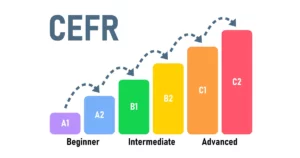Tell, Say, Speak và Talk: Cách sử dụng đúng ngữ cảnh.
Tell, Say, Speak và Talk là những động từ tiếng Anh mà người học ESL luôn lẫn lộn. Mặc dù những động từ này thường tương tự với nhau, nhưng cách chúng ta sử dụng chúng trong ngôn ngữ là khác nhau. Ví dụ, vấn đề làm thế nào để sử dụng chúng một cách chính xác là một câu hỏi thường gặp của người học tại QQEnglish.
Nếu bạn cũng bối rối, chúng tôi biết bài viết này sẽ hữu ích cho bạn. Lần này, chúng ta sẽ học cách sử dụng Tell, Say, Speak và Talk một cách chính xác. Điều này nghe có vẻ đơn giản nhưng bạn phải cẩn thận khi hiểu quy tắc để tránh phạm phải sai lầm tương tự vào lần sau.
Bạn đã sẵn sàng để tìm ra sự khác biệt? Bắt đầu nào!

Kh nào dùng Tell
Trong tiếng Anh, chúng ta thường sử dụng Tell khi ra lệnh hoặc chỉ dẫn. Khi dùng Tell luôn có tân ngữ (ví dụ: you/her/us) ngay sau động từ
Ví dụ:
She told her mother to buy her an extra pair of shoes.
The professor told his students to focus their attention on the class.
I forgot to tell them I will be absent today.
Về mặt ngữ pháp, ‘say’ và ‘tell’ có thể được sử dụng thay thế cho nhau để diễn đạt cùng một ý nghĩa khi thông tin được truyền từ người này sang người khác. Ở đây, cấu trúc sẽ là: ‘tell’ + object hoặc ‘say’ + ‘to’ + object.
Ví dụ:
Mary told me she would not join the trip.
Mary said to me she would not join the trip.

Khi nào dùng Say
Khi chúng ta sử dụng ‘say’, việc sử dụng một tân ngữ (ví dụ: me / them / you) ngay sau động từ KHÔNG CẦN ĐẾN NỮA. Động từ ‘say’ được sử dụng khi chúng ta dẫn lời mọi người trực tiếp và cũng như khi chúng ta đưa ra chỉ dẫn.
Ví dụ:
Paul said he is arriving in 10 minutes.
The news said it would rain today.
He never said thank you after receiving the gift. Such an ungrateful woman.
Say can also express an opinion or thought, as in: ‘I say we should go to the beach and seize the day.

Khi nào dùng Speak
Chúng ta sử dụng động từ ‘speak’ (thay vì ‘talk’) khi ở trong một tình huống trang trọng hơn và muốn nhấn mạnh rằng điều gì đó quan trọng. Hơn nữa, với tư cách là một danh từ, ‘speak’ cũng có giọng điệu trang trọng hơn so với việc sử dụng ‘talk’ – tức là ‘Give a speech’ trang trọng hơn ‘give a talk’.
Ví dụ:
You need to speak about your failure in the recent project! (stricter than ‘talk about’)
Angelina Jolie will be speaking at the UN conference next month. (more prestigious than ‘give a talk on…’)
Bên cạnh đó, động từ speak còn được dùng để diễn tả sự trôi chảy trong lời nói hoặc kiến thức về ngôn ngữ.
Ví dụ:
‘She speaks three languages fluently–Chinese, Japanese, and English.’
In the sample sentence, the verb ‘speak’ means that she is fluent in three languages. It refers not only to spoken ability.

Khi nào dung Talk
Trong tiếng Anh, ‘talk’ là một từ trang trọng hơn một chút cho ‘chat’. Rõ ràng, chúng ta sử dụng động từ ‘chat’ khi chúng ta ở trong một khung cảnh thoải mái hơn hoặc khi chúng ta ở giữa những người bạn trong một tình huống trò chuyện.
Ví dụ:
Can I talk to you about the next week’s event?
We were talking to each other over the phone last night when the power suddenly went off.
‘I love chatting with my friends over a bucket of cold beer!’ (very informal)
Đôi khi, ‘speak’ và ‘talk’ có thể được sử dụng thay thế cho nhau để có cùng ý nghĩa và không cần thay đổi ngữ pháp của câu.
Ví dụ:
‘I will speak/talk with you about our project tomorrow.’
‘We can speak/talk about the agenda later this afternoon.’

TalkCommon English expressions with say, tell, speak or talk
Diễn đạt với SAY
Say something (= Say something to someone)
Ví dụ:
John has been always absent since last month? Should I talk to him and say something about his poor attendance record?
I need to say something to you about your behavior last night.
About to say (= to almost say something before you are stopped by something/someone)
Ví dụ:
She was about to say good night before you interrupted her and asked her to eat ice cream with you.
I was about to say I love you to him when he suddenly kissed me.
Nothing to say (= to not have anything to say about a topic or a person, can be used when there has been bad feeling around the topic.)
Ví dụ:
You already said everything. I have nothing left to say anymore.
After we ended our relationship, I have nothing to say to him about his future events.
Need to say (= we use this to have to say something to someone, to ensure the person is listening properly, to convey urgency or importance before saying what you have to say)
Ví dụ:
I can’t hold it anymore but I think I’m in love with him.
Hate to say (= to give over information when it isn’t something that the speaker wants to say or that the listener wants to hear)
Ví dụ:
I hate to say it, but she is not the best fit for this job. Should we let her pass the training?
She hates to say this, but her relationship with John is over.
Fair to say (= to say something that is reasonable and measured on a topic)
Ví dụ:
It’s fair to say that Mary deserves to win the contest.
It’s fair to say that I’m very impressed with your work performance this week.
Say no more (= used when the speaker no longer wishes to talk about a topic, often used to put an end to a hard conversation and move forward)
Ví dụ:
I am so pissed off about the poor presentation you had during the meeting. Please improve your work and make it better, and I’ll say no more about it.
Say a few words (= a phrase used when you want to say something about someone/something, often used at the start of a brief speech)
Ví dụ:
Before we end the program, I’d like to say a few words for our hospitable hosts tonight.
Before we sit down to enjoy the meal, I would like to say a few words about the bride and groom.
How can you say? (= when someone is in disbelief over something they have just heard)
Ví dụ:
How can you say such terrible things about your very own mother?
People say (= to convey information about something which is thought commonly or said by a group of people, often used to spread rumors or untruths.)
Ví dụ:
People say they associate black cats with bad luck.
What do people say about the Halloween folk legends in your town?
Diễn đạt với TELL
Tell about (= to share information about something that has happened or something that will happen in the future)
Ví dụ:
Can you tell me about your vacation in Japan last week?
I need to tell you about what happened at the party last night.
Tell a story (= to read or relay a book/tale to someone)
Ví dụ:
Let me tell you a story about Romeo and Juliet.
My teacher told a story about his near-death experience last month during his vacation.
Tell a lie (= to say something that is not true)
Ví dụ:
I love the way you tell a lie.
She told a lie when she said she’s done with her project. The truth is, she has not started it yet.
Tell the truth (= to say something that is true)
Ví dụ:
The police asked the criminal to tell the truth during the investigation.
Tell me the truth! Who stole my purse?
Tell the time (= to read the time on a clock/watch)
Ví dụ:
Could you tell me the time, please?
Tell a secret (= to share something with someone that should be kept confidential)
Ví dụ:
I’m going to tell you a secret but promise me you keep it to yourself.
Please don’t tell the secret to anyone. It’s confidential.
Tell a joke (= to share a joke with someone)
Ví dụ:
She’s very good at telling a joke.
She can tell a joke that would make you laugh out loud.
Tell the difference (= to identify characteristics that differ between two or more things/people)
Ví dụ:
Can you tell the difference between orange and tangerine?
I can’t tell the difference between they’re and their in spoken English.
Tell tales (= to pass on information to get another person into trouble, not always true stories)
Ví dụ:
Stop telling tales on Lily! I know it wasn’t her who stole the necklace.
Diễn đạt với SPEAK
Speak up (= to have to say something louder in order to be heard)
Ví dụ:
Can you please speak up? I can hardly hear you.
When speaking publicly, it’s very important to speak up or use a microphone so that our listeners can hear us.
Speak on (= to say something about a topic or subject, often in a formal setting)
Ví dụ:
I spoke on the topic about the importance of English in class yesterday.
Let’s speak on the success of Philippine tourism for tomorrow’s lesson.
Speak about (= to say something on a topic or subject with someone, often in a more relaxed setting than ‘speak on’)
Ví dụ:
Shall we speak about the improvements of the project we’re launching next month?
Today, I’d like to speak out about the benefits of learning IELTS in the Philippines.
Speak to (= to communicate with someone verbally, quite formal)
Ví dụ:
She spoke to me about the project proposal I made yesterday.
May I speak to you about your plans of resigning from the company next week?
Speak for (= an expression used when someone is saying something on another’s behalf)
Ví dụ:
I speak for the company to congratulate you on a job well done!
He spoke for his wife during the ceremony, provided that his wife had a fever yesterday.
Speak with (= to talk to someone about a topic, consult or get advice)
Ví dụ:
I need to speak with you about what happened this morning.
We need to speak with the manager first before we can start planning for the event.
So to speak (= used when quoting a figure of speech or describing something abstractly)
Ví dụ:
She will tell you what is going on, but only because you are already family, so to speak.
My sister and I are not allowed to go out with our friends. Our parents always sit on our heads, so to speak.
Speak ill of (= to have unpleasant things to say about someone or something)
Ví dụ:
I can’t stop but speak ill of her. I just hate her so much.
Why do you always speak ill of your sister? Do you really dislike each other?
Speak up for (= to say something on someone’s behalf who may not have the authority to speak themselves or may feel afraid or shy to do so)
Ví dụ:
As humans, we need to know our rights and speak up for those who are discriminated against and abused.
Mary is such a helpful woman; she always speaks up for her friends, who always get bullied.
Speak highly of someone/something (= used when someone says wonderful things about someone or something)
Ví dụ:
My boss always speaks highly of me in the office and I couldn’t be any prouder.
Her teacher speaks highly of her performance in the class.
Diễn đạt với TALK
Talk up (= used when someone praises someone/something, perhaps to promote)
Ví dụ:
The students can’t talk up about their new class adviser. Her teaching strategy is so remarkable.
Talk down (= used when someone is diminishing something they or someone else has done in fear of looking like they are showing off)
Ví dụ:
You can’t talk down your efforts for this project. It will not be successful in your participation.
Talk out of (= used when you are trying to convince someone to change their mind about a bad idea they have)
Ví dụ:
He talked her out of quitting school.
Talk back (= to reply rudely, often to voice opposition or question an order)
Ví dụ:
It’s vulgar to talk back to people older than you.
Talk over (= to interrupt or speak when someone else is talking)
Ví dụ:
I hate it when someone talks over me while I’m speaking. I think he/she should wait for her turn to speak.
Talk about (= to say something about something/someone)
Ví dụ:
We can talk about this project in our next session.
Can we talk about this topic next time?
Talk down to (= to say something to someone in a manner which is condescending)
Ví dụ:
Sometimes, rich people talk down to poor people because they think they are superior to others.
He talks down to me maybe because is the manager and I’m just a normal staff.
Talk to (= to say something to someone)
Ví dụ:
I am going to talk to my boss after the meeting about this problem.
Talk on (= to talk about a certain subject or topic)
Ví dụ:
After their talk about learning English in the Philippines, my team will also talk on getting visas, accommodation, etc.
Talk with (= to have a conversation with someone about something/someone)
Ví dụ:
Lisa needs to talk with Sheila to complete their plans for the party.
Talk around (= to talk indirectly about an issue that may be sensitive without addressing it directly)
Ví dụ:
They’ve been talking around the real issue rather than addressing it directly.
Kết luận
Tóm lại, việc phát hiện ra sự khác biệt giữa các động từ Tell, say, speak và speak không phải là quá khó. Nhưng bằng cách nào đó, tất cả những gì bạn cần làm là chỉ tuân theo quy tắc. Và tôi chắc chắn rằng khi bạn nhớ được sự khác biệt, việc sử dụng chúng một cách chính xác sẽ dễ như trở bàn tay.
Với tất cả các chi tiết trên, bạn có còn lẫn lộn giữa Tell, Say, Talk và Speak nữa không nào?




